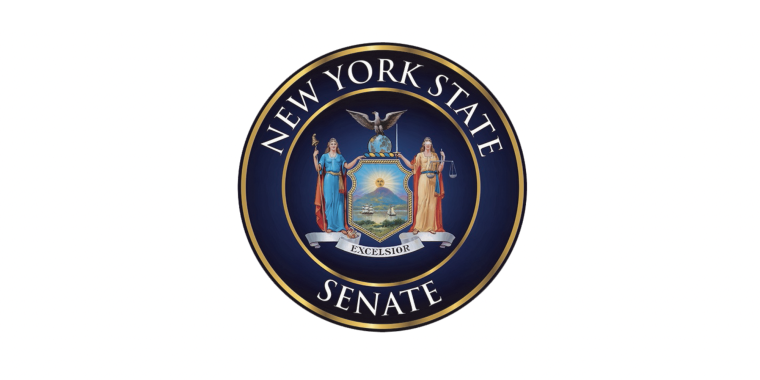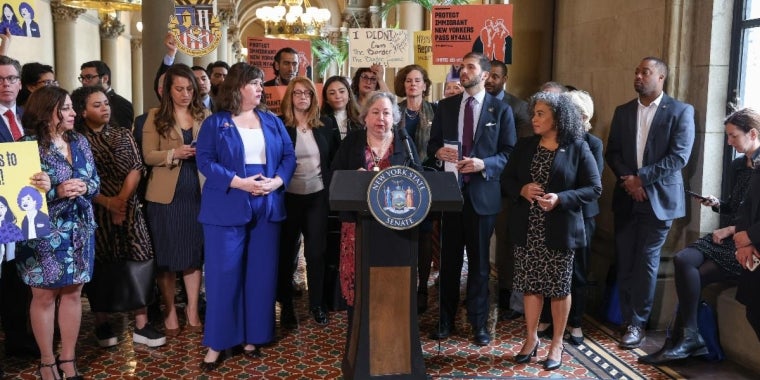
Wall Street Journal: Law Spurs Interest in Helping New Moms Deal With Depression
Today, the Wall Street Journal reported on the state's maternal depression law, the result of a bill that Sen. Krueger sponsored, along with Assembly Member Dick Gottfried. The law increased education and access to information and screening about maternal depression for new mothers:
Law Spurs Interest in Helping New Moms Deal With Depression
More nurses, social workers, other providers seek out training
By
Anne Machalinski
Until this year, the Seleni Institute, a nonprofit center devoted to women’s mental health and wellness, held only small, private training sessions on postpartum depression.
But after New York state’s maternal depression law went into effect in January, the agency trained 67 nurses, social workers and other providers on how to identify the condition and connect women with services at a public session in Brooklyn, in April. And the organization has had so much interest that another public training has been set, with more than a dozen others in the works.
“We never expected the growth that’s been happening, and it’s kind of our scramble on the back end to meet demand,” said Rebecca Benghiat, Seleni’s executive director.
Advocates and practitioners around the state say there has been an uptick of interest in being trained about maternal depression and associated conditions, which can occur during pregnancy and up to a year after childbirth, since passage of the measure. The law created statewide screening guidelines for new mothers, expanded pediatricians’ scope of practice so they can screen women and mandated that new moms be educated on maternal depression before leaving the hospital or birthing center.
Still, even those who drafted the law acknowledge it isn’t a panacea for the often-stigmatized mental-health conditions that affect up to one in five pregnant or postpartum women within the first year after childbirth.
“You can’t fix a medical issue with a piece of legislation,” said New York state Sen. Liz Krueger, a Democrat, who sponsored the bill. “What you can do is hopefully direct our state to move closer to best practice so when women do end up in this situation, they can get the help that they need as quickly as possible.”
Paige Bellenbaum, a 41-year-old mother of two, suffered in silence rather than getting help. After the birth of her first child about nine years ago, she stopped sleeping and eating, cried for much of the day and frequently fantasized about abandoning her family, she said. At her lowest point, Ms. Bellenbaum said, she even considered throwing herself and her son, Max, in front of an approaching bus. That day, she went for help and was diagnosed and treated for severe postpartum depression.
Later, she told Sen. Krueger her story, and together they worked for six years to draft and pass legislation. “I wouldn’t have to have existed in that confused dark place as long as I did if it had been more of a normalized issue and one that the medical community experiences as prevalent and important,” said Ms. Bellenbaum, the director of community programs for Settlement Housing Fund, a nonprofit affordable-housing developer.
New York is one of fewer than a dozen states with legislation targeting the illnesses, said Wendy Davis, executive director of Postpartum Support International. “The fact that the New York state government acknowledged that this is a priority issue and a public health issue is a step in the right direction,” she said.
Since passage of the law, nonprofit groups say they are seeing more health-care providers reaching out for literature, attending training sessions and screening women, and more local politicians publicly supporting their efforts to educate the public.
“We’ve had more people reach out to us and request our [brochures] and our posters,” said Sonia Murdock, executive director of the Postpartum Resource Center of New York.
Still, advocates complain that the law, which came with no funding, didn’t task an agency with verifying that providers are getting information, women are being screened or, when necessary, receiving follow-up care. It also doesn’t require that every woman be screened regardless of whether they have insurance.
But for Ms. Murdock, the law represents a step in the right direction, and one that is been a longtime coming. “Finally,” she said, “we’re at the cusp of something really huge.”

